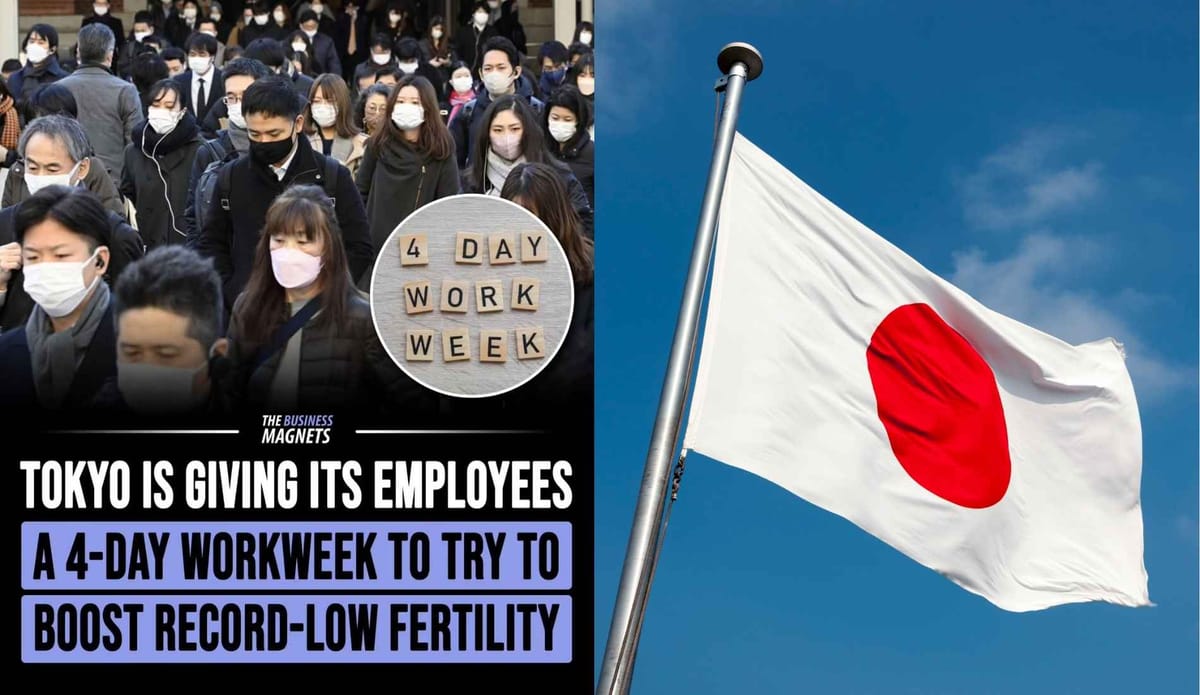Tokyo's Bold Move: The 4-Day Workweek Revolution
Starting in April 2025, Tokyo will embark on a transformative journey by introducing a 4-day workweek for its 160,000 government employees.

This pioneering initiative seeks to enhance work-life balance, boost national productivity, and address Japan’s pressing demographic challenges, particularly the declining fertility rate.
The Demographic Crisis at Hand
Japan’s fertility rate plummeted to a historic low of 1.2 in 2023, with only 758,631 births recorded—a stark contrast to the aging population. Factors such as late marriages, high living costs, and a persistent gender wage gap have exacerbated the issue, making it challenging for young couples to prioritize starting families.
To counter this, the government’s new workweek policy aims to alleviate pressures by giving employees more time for personal lives and caregiving responsibilities. This progressive measure hopes to boost birth rates and redefine Japan's work culture, notorious for its intense, overworked environment.
Supporting Young Families with Flexibility
Complementing the 4-day workweek, Tokyo is introducing additional measures, like allowing parents of young children to work shorter hours, albeit with reduced salaries. This policy highlights the importance of flexibility during critical child-rearing years, sending a clear message that the government prioritizes family well-being over rigid corporate structures.
Innovations to Tackle the Crisis
Japan’s efforts to combat its population decline extend beyond flexible work schedules. Several initiatives have been launched, including:
- Childcare Improvements: Significant investments are being made to improve the availability and quality of childcare facilities, easing the burden on working parents.
- Egg Freezing Programs: Subsidized egg freezing options help women balance their careers with future family planning.
- Government-Backed Dating Apps: Designed to address the declining marriage rate, these apps encourage meaningful connections and ease the path to long-term relationships.
Learning from South Korea’s Battle with Low Birth Rates
Tokyo’s policy shift mirrors efforts in South Korea, where the fertility rate is even lower at 0.78. South Korea’s unconventional solutions, from financial subsidies for childbirth to reversing vasectomies, highlight the lengths to which governments go to address population decline.
A Vision for the Future
While the effectiveness of these measures remains to be seen, Tokyo’s bold experiment with a 4-day workweek sets an inspiring precedent for other nations grappling with demographic challenges. By focusing on work-life balance and prioritizing family-friendly policies, Japan is taking significant steps toward a brighter, more sustainable future.
What This Means for Global Work Culture
The success of Tokyo’s initiative could ignite a global conversation about the future of work. As the world becomes increasingly aware of the importance of mental health and family well-being, policies like the 4-day workweek may shift from being exceptions to becoming norms. After all, a thriving society is built on the foundation of its people, and giving them the time and resources to thrive is a goal worth pursuing.




